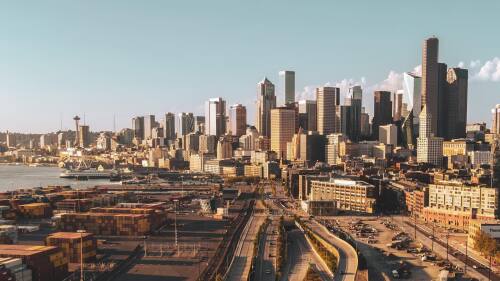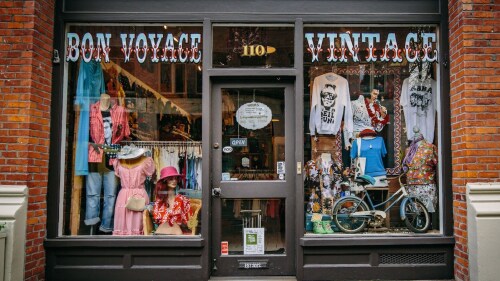South Lake Union’s Northwest Native Canoe Center is rowing right along. The $4.7 million project highlighting Coast Salish culture will have a ceremony to bless its Carving House construction tomorrow in anticipation of breaking ground later this year.
While the center has been in planning stages since 2019, Native activists have pushed for decades to secure more local land from the government, including areas with waterfront access for wooden canoes — an important aspect of tribal heritage going back thousands of years.
Here are some details about the project, operated by the United Indians of All Tribes Foundation.
Background behind the building
Before non-Native people arrived in the area, canoes were the primary method of traversing local waterways, with longhouses dotting the landscape in varying construction styles.
Records show that in the 19th and early 20th centuries, Duwamish chief Cheshiahud lived on Lake Union even after a 1865 Seattle ordinance banned Native people from the city for years. Given that context, Willard Bill Jr. — a canoe skipper with the Muckleshoot Tribe — told the Seattle Times it’s important for Native youth and the public to “access authentic Native culture from this area.”
Carving out space
In the first phase of the project, the 1,200-sqft Canoe Carving House — a modern version of a traditional longhouse decorated with cedar and a roof blossoming with blue camas — will be built near Goose Beach. In addition to educating visitors on Native customs, the facility will feature carving demos and store handmade canoes to be launched on Lake Union.
There’s a fundraising effort to help with the center’s second phase — the Welcome House that’s expected to include interactive displays, a catering kitchen, and room for events. Finalized designs were announced in November — and they look pretty darn cool.
Bonus: The Canoe Carving House likely won’t open until late 2024, but you can learn more about local Native history by stopping by West Seattle’s Duwamish Longhouse and Cultural Center, Pioneer Square’s new ʔálʔal Café, or the Burke Museum.











